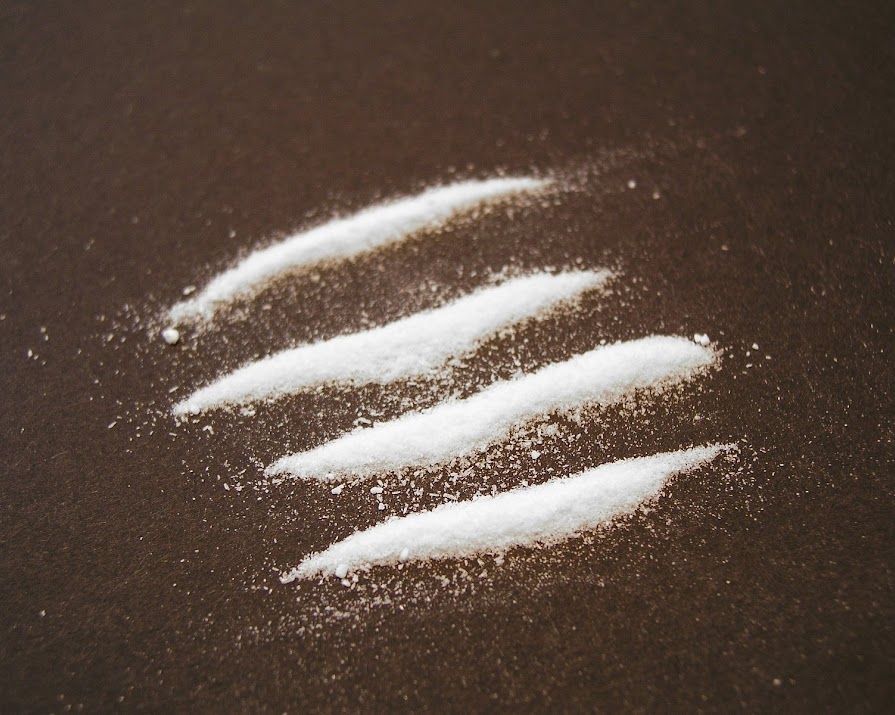
New report shows ‘worrying trend’ in cocaine use as treatment numbers triple
By Shayna Sappington
09th Jul 2020
09th Jul 2020
Emerging data shows a significant rise in cocaine treatment as well as drug treatment for young people under the age of 18
Although opioids remain the most common drug among cases treated, the latest figures from the Health Research Board (HRB) show the number of cases presenting for cocaine treatment have trebled.
A total of 2,560 cases (24%) were treated for problem cocaine use in 2019, more than three times the number of cases reported in 2013 (8%). The number of cases treated for crack cocaine is also increasing, with 367 cases reporting it as a main problem drug last year, an increase from 255 cases reported in 2018.
These new figures make cocaine the second most reported drug problem across the country. Opioids are at the top of the list (39%) followed by cocaine (24%), which has just surpassed cannabis (23.5%) for the first time ever.
Cocaine and crack cocaine use
Eight-in-ten cocaine cases each year since 2013 have been reported by men and usually involve the additional use of alcohol, cannabis or benzodiazepines. Dr Anne Marie Carew, research officer at the HRB, says this is common for these cases.
“In general, those seeking treatment for cocaine are male, 30 years of age, in paid employment and most likely to use alcohol as an additional drug,” she explained.
“However, a rise in reporting of crack cocaine is a worrying trend where cases with chronic problem drug use, mix crack cocaine with opioids.
“These cases are more likely to be unemployed and homeless. It is important that this distinction is noted in order to monitor trends and tailor treatments accordingly.”
Young people
Another growing concern has been the increase in the number of young people reporting drug problems. Young people under 18 years of age accounted for 822 of the cases in 2019, an increase from 732 cases in 2018.
This rise in younger users may be attributed to increased drug use at music festivals. The HSE warned people against following the popular trend of using laughing gas at festivals earlier this year.
While drug treatment for cocaine use and younger users have been on the rise, opioid cases have actually been decreasing. In 2013, over half of drug problems reported (51%) involved opioids and in 2019, this number dropped to just 39%.
In general, there has been an overall increase of 18% in treated cases between 2013 and 2019.
The Minister of State with responsibility for Public Health, Wellbeing and the National Drugs Strategy Frank Feighan says that while this data shows “a worrying development” in cocaine trends, it also illuminates the fact that more people are healthily seeking treatment.
National Drugs Strategy
“The HRB data also highlights significant decreases in opioid use and just how well drug treatment services nationwide have responded to the increased demand,” said Feighan. “The investment in treatment services over the last number of years under Reducing Harm Supporting Recovery has enabled us to increase the capacity to meet the extra treatment demand.”
Last year, the HRB’s research contributed to the development of the €750,000 multi annual investment plan under the National Drugs Strategy for 14 strategic health initiatives. These initiatives will focus on early harm reduction, responding to emerging trends and patterns of substance misuse and improving access to services for people with complex needs.
This year, the Department of Health is also introducing the Health Diversion Programme, providing €100,000 to develop a national harm reduction campaign to raise awareness of the risks associated with drug use. This will include the use of club drugs, festival drug use and new trends.
If you or someone you know is struggling with a drug problem, call the HSE Drug and Alcohol Helpline. It is available on 1 800 459 459 from Monday to Friday, 9.30am to 5.30pm.
Read more: ‘My brother died after taking a synthetic drug at a house party. Now I’m determined to turn my grief into something positive’
Read more: People struggling with addiction need greater support, and it starts with the language we use
Read more: Why we need to talk about Adderall




















